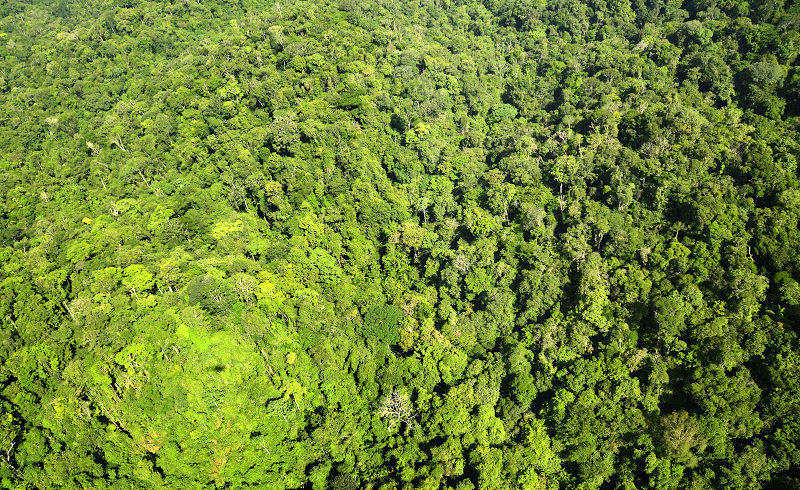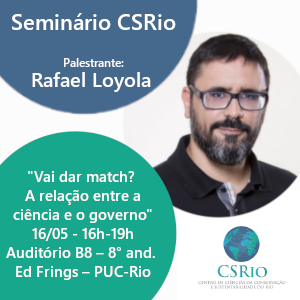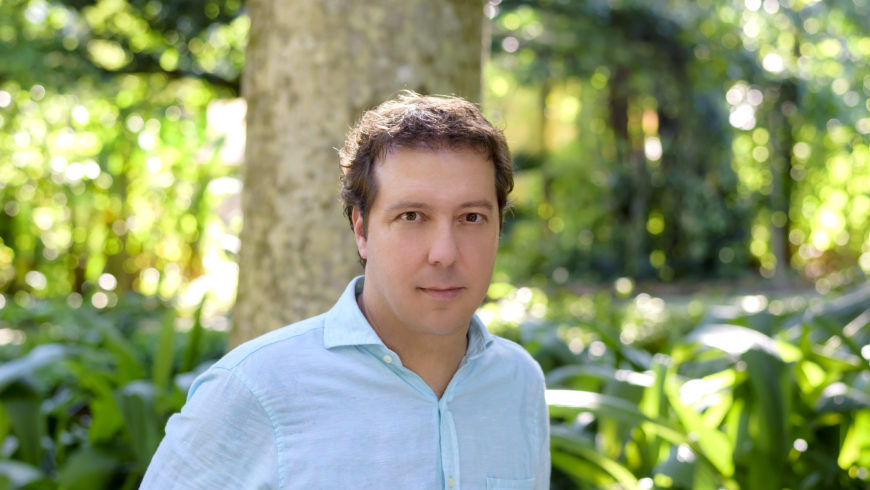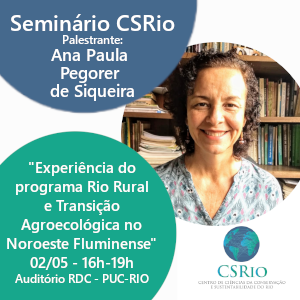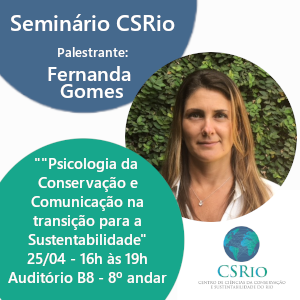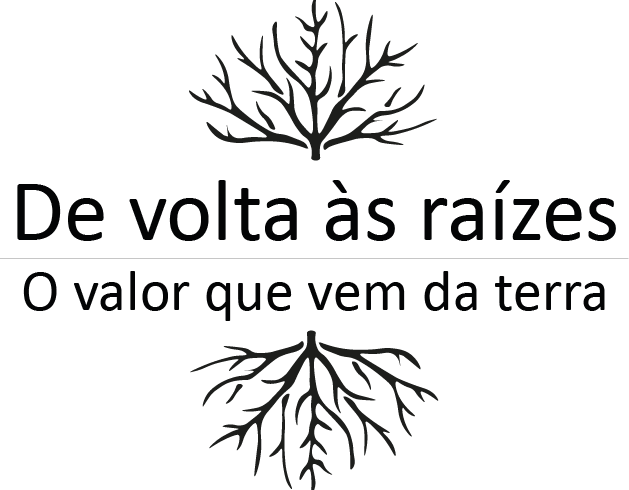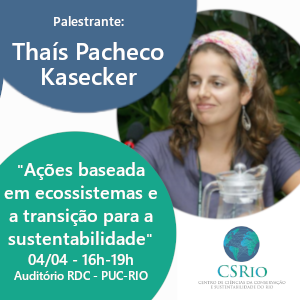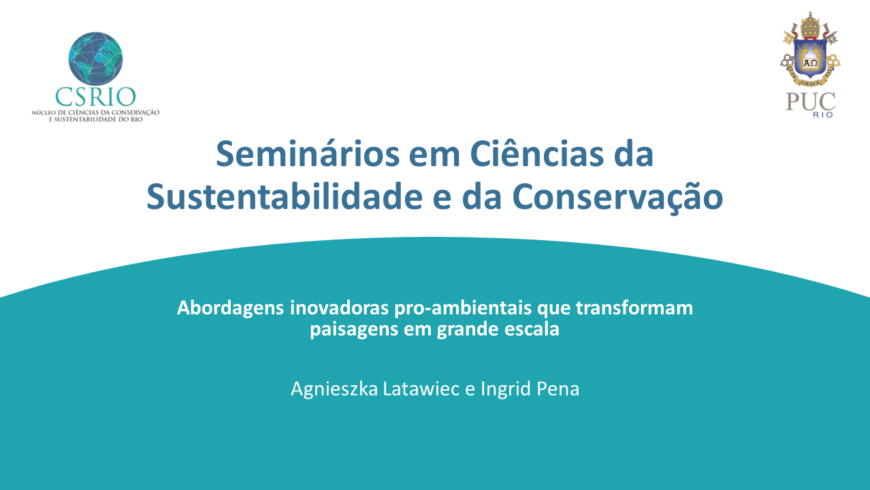Soils provide the basis for food production and help to control the damaging consequences of climate change by regulating greenhouse gases and water. Nevertheless, soil remains a neglected resource by governments and, consequently, farmers and decision-makers underestimate its value. Brazil has an abundance of agricultural and forest areas, which is fundamental for global food security and climate regulation. While vast areas are being deforested, agricultural areas also suffer from overexploitation and inadequate soil management, which leads to the degradation of this natural resource. For example, livestock is one of the leading agricultural activities in the country; however, the majority (75%) of the areas under pasture is degraded. In this context, the project ‘Sustaining the land from the bottom up: developing soil carbon and soil ecosystem services valuation frameworks for tropical soil’ aims to show the importance of soil ecosystem services for ecosystems functionality, the food chain and sustainable land management. The project includes environmental analyses of pasture data; base on the results, soil services will be valued. Subsequently, we will inform and translate scientific results for decision-makers, that is, farmers and public policymakers. The dialogue between science, society and politics has the potential to contribute to the improvement of soil management in Brazil and worldwide. The project is coordinated by Agnieszka Latawiec, who is also the coordinator of CSRio. ‘This project is also an opportunity to show how natural and social sciences should integrate and collaborate to benefit land use, explains Agnieszka, who is also a professor at the Department of Geography and Environment at PUC- Rio and executive director of the International Institute for Sustainability (IIS). The project is funded by the Newton Fund Advanced Fellowship, Royal Society (U.K.), the Carlos Chagas Filho Foundation for Research Support in the State of Rio de Janeiro (FAPERJ), the National Council for Scientific and Technological Development, and the Pontifical Catholic University of Rio de Janeiro (PUC-Rio). The project is being conducted through three work packages that are linked to its main objectives. 1. A systematic review of soil ecosystem services in tropical regions The theme of soil ecosystem services emerges as an innovative approach with the potential to contribute to reducing the process of soil degradation. It encourages better communication of scientific results to decision-makers, supporting a more reliable connection between science and politics. Exploring the theme of soil ecosystem services in the tropical region is important because i) important forest landscapes are located in countries in this region, such as Brazil and Indonesia, and consequently can suffer a lot from processes of deforestation and soil degradation; ii) includes leading countries in the production of agricultural products; III) includes the poorest countries and, therefore, the most vulnerable populations regarding social and environmental injustices. Studies that seek to contribute to the understanding the current scenario and guide efforts for the next researches in the tropical region are urgent and necessary, as it is through soil conservation measures that we will guarantee the functioning of ecosystems. 2. Evaluation of soil ecosystem services, modelling and valuation of experiments with different methods of forage management and forest restoration in Brazil One of the biggest challenges regarding soil ecosystem services is modelling and evaluation, as both topics are rarely addressed in publications. During the workshops discussions among project’s participants and collaborators, allowed us to move forward in knowledge on these topics. After research on the necessary data, a field protocol will be developed to assess some of the soil ecosystem services. Also, we will perform respirometry, and analyse the soil’s water retention capacity. We will analyse the data obtained in the field experiment, and add details of the proposal in the seedling and pasture experiment. Data will be obtained from a two-year experiment (2016 – 2017) on the impact of different management methods (such as liming, fertiliser, biochar and legumes) on soil quality and forage productivity. The experiment involved 80 experimental plots with three different tropical forage grasses in multiple crop cycles and provided a robust data set that will be used, in a pioneering way, to propose new approaches to evaluate the SES. The SES will initially be classified according to the Millennium Ecosystem Assessment (MEA, 2004), as proposed by the Intergovernmental Science-Policy Platform on Biodiversity and Ecosystem Services (IPBES), and by other models that emerge during the first stage of the research. Then, the most appropriate evaluation option will be chosen based on the existing literature and the contribution of stakeholders. 3. Collection, exchange and dissemination of knowledge at the science-public policy interface The results will be disseminated to scientific and non-scientific audiences through workshops and other activities of knowledge exchange and communication on soil ecosystem services. We believe that this is necessary for the framework to contribute to better soil management. Finally, we will present recommendations on soil valuation methodology and propose the inclusion of SES in the context of Brazilian public policies. We held four workshops until August 2020, two in Brazil and two in England. In June 2019, we carried out an environmental education activity using an active learning method at a school in Rio de Janeiro. We introduced the concepts of environmental resource management, the tragedy of common goods, inflexion point and reproduction rate. We conducted a review on soil ecosystem services in public policies in Brazil, which we presented at the third workshop, held at PUC-Rio, in October 2019. The network of collaborators was expanded, and we are developing a communication strategy with decision-makers. In 2021, we will perform interviews and workshops with policymakers, experts who lead the knowledge exchange process about SES and with farmers. Project-related publications: • Latawiec, A. E.; Strassburg, B. B. N.; Junqueira, A.; Araujo, E.; Moraes, L. F.; Alves-Pinto, H.; Castro, A.; Rangel, M. C.; Malaguti, G.; Rodrigues, A.; Barioni, L. G.; Novotny, E. H.; Cornelissen, G.; Mendes, M. S.; Da Silva Batista, N.; Guerra, J. G.; Zonta, E.; Jakovac, C.; Hale, S. Biochar amendment improves degraded pasturelands in Brazil: environmental and cost-benefit analysis. Scientific Reports, 2019. https://www.nature.com/articles/s41598-019-47647-x • Latawiec, A. E.; Seraphim, M.
Read more



